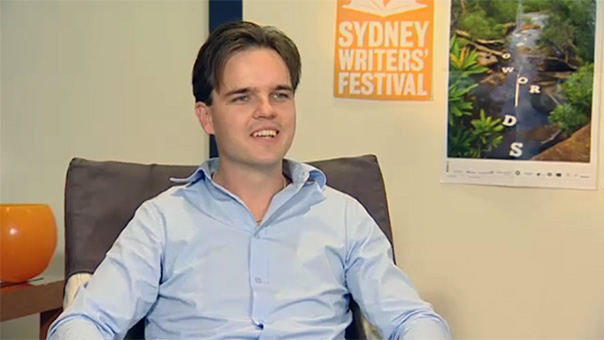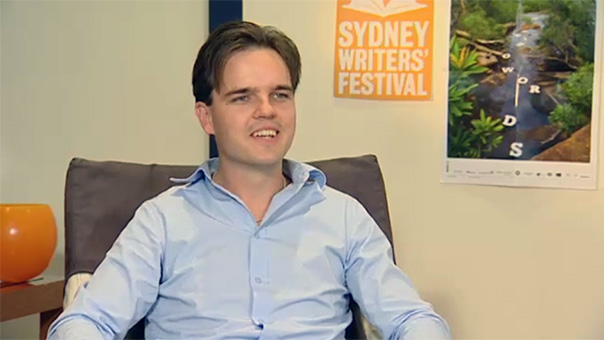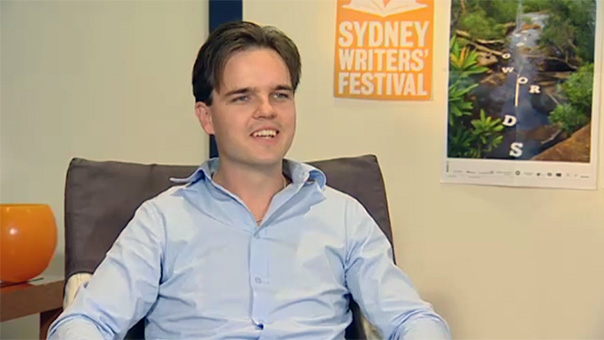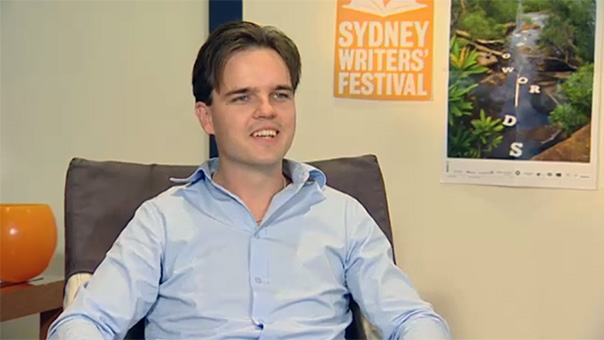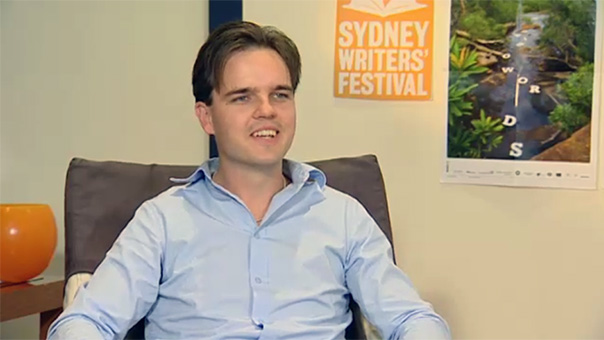Writing process
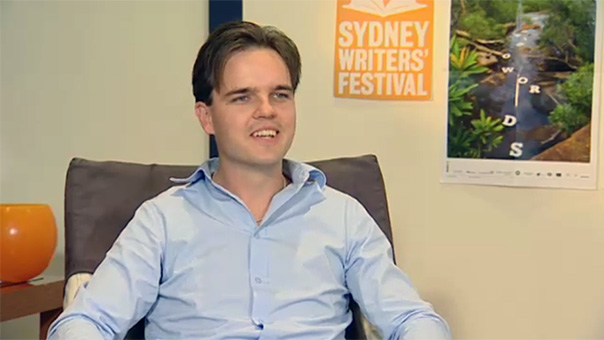
NSW DoE 2015
Viewing guide
Think about the creative writing processes you use or know about.
-
Is any one of those processes easier for you than another? How?
-
How could ‘free writing’ be a useful way to start writing a story?
Listen for the different tools and methods Tristan uses to research his ideas and structure his stories.
-
Would you use any of these ideas in your own writing process? Why or why not?
-
How would you describe your writing habits?
-
Do you consider who your audience is before you start writing or as you write?
-
How does Tristan use cards to organise the structure of his writing? At what point does ‘the skeleton’ help him to write?
-
How does Tristan use the internet to help his writing process? Could you or do you use the internet in this way?
-
Why would ‘co-writing’ be fun for you?
Interviewer: Do you follow similar processes with each book that you write? Do you have any particular work habits?
Tristan Bancks: Not consciously. I don't consciously do the same thing every time I write a book. But I tend to start off with free writing. I'll get the idea and then I'll blurt down a whole bunch of stuff, maybe a whole pad worth of stuff, or on the laptop. Then I get to a point where I don't have any more to say about that so I might start to work out what might be an interesting opening for the book. And then at a certain stage I might start to wonder how the whole thing is going to be structured and I might put down an idea for a chapter on lots of cards. I just happen to have some right here. I'll get an A4 page, cut it into quarters, and here I've got a book idea that I'm working on, and then I'll put an idea for a chapter on each of the cards. I won't necessarily know the order of those yet but I'll spread them all out on the floor or blu-tac them up on a wall and I'll just start shuffling them around and starting to find the structure of it. I'll say, 'Well that definitely comes before that and then maybe this here and then maybe this.' And slowly the skeleton of the story starts to present itself. It's a really good unconscious way of the story telling you how it wants to be structured. And also it stops you from getting stuck. If you get stuck and you think, 'I don't know what else to write', that skeleton really helps you.
Interviewer: Modern technology, from blogs to vlogs, feature in your Mac Slater, Coolhunter series, is this something that you needed to research for your novel? Is research a part of your usual writing process?
Tristan: The web is really important to my writing process. I spend a lot of time when I first have an idea, surfing around, thinking about that. I like to find images on the web and put them into slide shows. I like to find music, maybe at iTunes or something, and put together an iTunes playlist that feels a bit like the book that I'm writing. Yeah, I'll find a lot of things on the web so I guess the fact that blogs and vlogs and, yeah, lots of technology finds its way into my books isn't really a surprise.
Interviewer: You have co-written a book. How does co-writing work?
Tristan: Co-writing is fun because you only have to write half the book, so it's immediately much easier. Also you're bouncing ideas back and forth and in times when you're kind of getting a bit lax and you think 'Oh, I can't ... I don't know where to go', you've always got someone urging you on to continue with it. I wrote a book via email between my place up near Byron Bay and a friend of mine's place in Los Angeles, where she lives, and we wrote the book via email. Every morning I'd wake up and there'd be an email for me from her and I'd just have to respond to it in character. It was a really exciting 'gut' way to write and I think lots of unexpected, funny, interesting things happen when you're bouncing off someone else, rather than that lonely path of banging your head against the laptop, hoping something exciting's going to come out.
Interviewer: What are the challenges of writing for different audiences?
Tristan: I don't think consciously about trying to change the way I write for different audiences. I think I'm maybe writing for me at that age. I've written for, sort of, something solidly primary school age and then I've written stuff for Mac Slater, Coolhunter series, which is, sort of, late primary-early high school, and then a young-adult novel coming up, 'It's Yr Life'. And, I don't know, I think I just start writing and it starts to tell me what age it might be for. But I have really good memories of being in late primary school, so I think often I want to be writing for that sort of age group.
